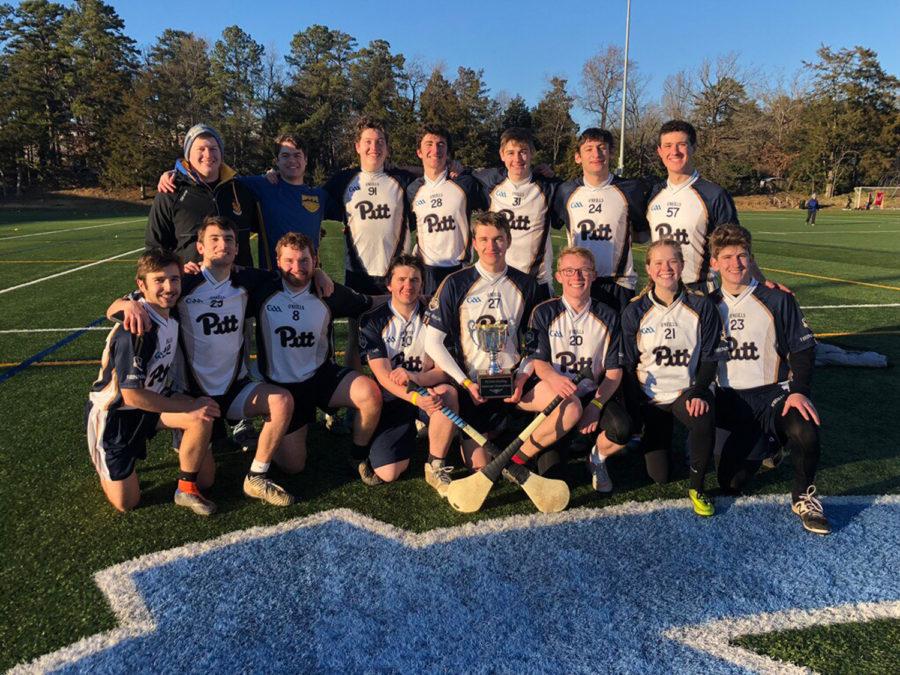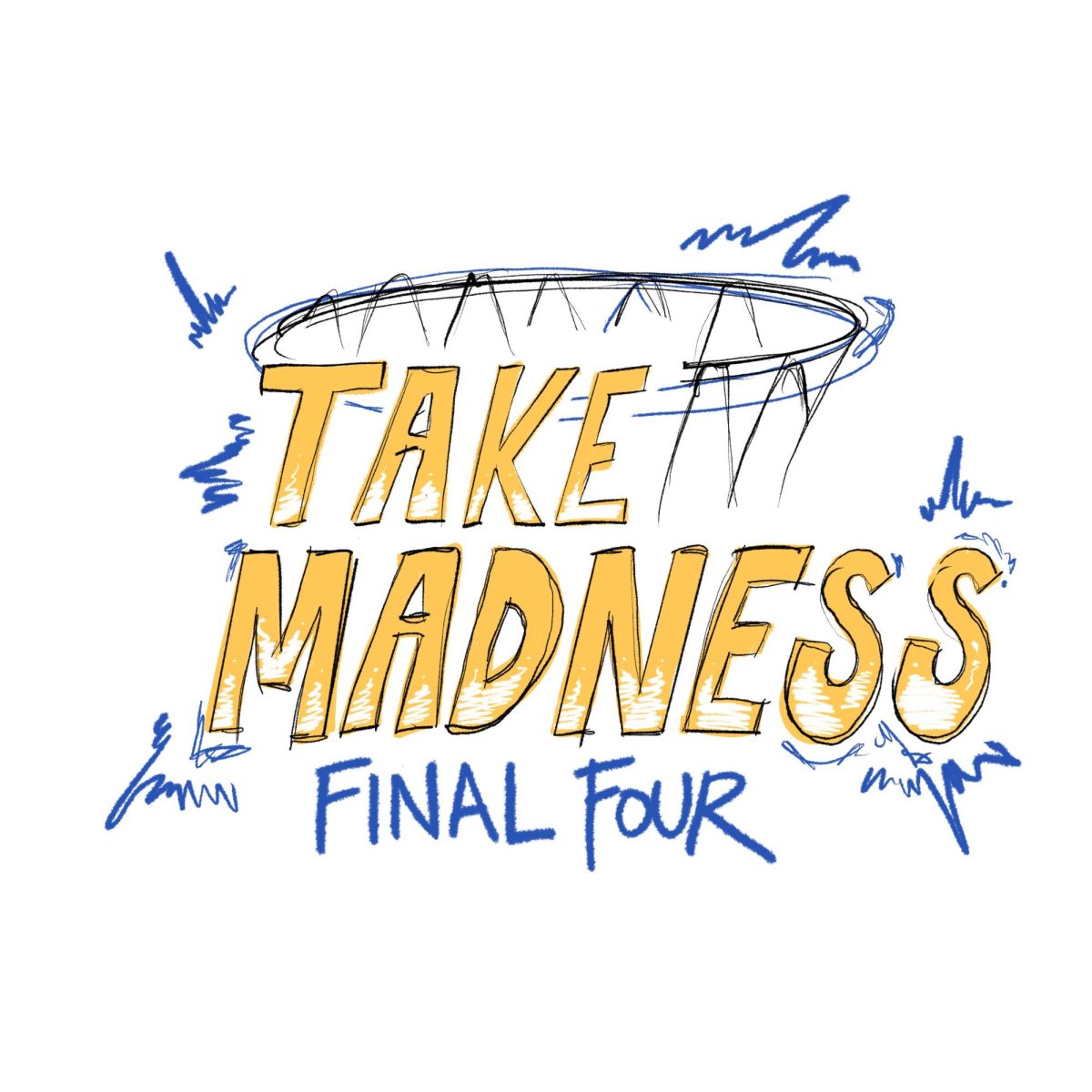Hurl to Pitt: Club excels at national level
Photo courtesy of Pitt Club Hurling/Anthony Popovski
The Pitt Hurling Club team is the 2018 National Collegiate Gaelic Athletic Association Hurling National Champions after defeating UNC and Purdue in the final stages of the tournament.
February 5, 2019
When Darragh Johnston took over as president and captain of the the Panther Hurling Club team in 2018, he didn’t know if it would be able to field a full 11-man team, much less compete for a national title.
One semester of intense recruiting, development and improvement later, Johnston, a junior chemical engineering major, was handed the trophy for the National Collegiate Gaelic Athletic Association Hurling National Championship following Pitt’s victories over UNC and Purdue in the final stages of the tournament on Jan. 20.
“I was worried, honestly, that I would be the president that saw it all come to an end,” Johnston said. “That it would be under my tenure, that I would be the president that hurling club ends under and then fast-forward four months later, I’m the first hurling president with a national championship.”
The top four teams advanced from the first round-robin stage into a four-team single elimination bracket. With dominating wins over Cal and Virginia Tech in their first day of games, the Panthers earned the second seed in the tournament. The club’s first game in the single-elimination bracket was against No. 3, host UNC.
After a close first half, Pitt had built enough of a lead against the Tar Heels in the second half that Johnston was able to call his sister and confidently tell her the Panthers would play in their first national title game. The last obstacle would be top-seeded Purdue.
The Panthers were familiar with Purdue, having made the 16-hour round-trip drive to West Lafayette to face the Boilermakers last fall. That time, the hurling club members left with a sour taste in their mouths after a tough loss.
Not only did Purdue already have a game up on the Panthers, but it also had experience and motivation. The Boilermakers had lost to Montana, their semi-final opponent, in the championship game at last year’s national championship.
Purdue scored the first goal, putting three points on the board. A quick point for the Panthers followed by two goals in two minutes gave Pitt the lead, and it never looked back, winning by a final margin of 20-3 or 4-8 to 1-0 in hurling scoring.
According to Johnston, hurling, an Irish sport, is like a “mix between field hockey, lacrosse, rugby and mayhem.” Normally played with 15 players, the NCGAA rules require only 11, adapting to the smaller playing field utilized by the sport’s American players.
Johnston’s efforts to rebuild the club, along with vice president Joe Koniszewski, were centered on adding members to fill the roles of the 12 graduating seniors –– essentially the whole team.
Along with Koniszewski, Johnston knew bringing up the numbers through recruitment would be the only way the team would survive, using the club sports fair and word of mouth as its main ways to recruit new members.
Once it had its numbers, a new challenge awaited –– helping its new players pick up a sport very few of them had ever heard of and that even fewer of them had ever played.
At the club’s first fall practice, only four of those present had ever actually played hurling before. One of those four was Johnston, who knew how the more inexperienced members of the team felt.
When he joined the club as a first-year in 2016, Johnston didn’t know how to play the sport, either, despite being familiar with hurling through his Irish heritage.
“I never played hurling before,” Johnston said. “But neither had anyone else on the team.”
That experience of learning the game along with his teammates served as a blueprint for Johnston and Koniszewski to teach their new class of recruits. Both had played soccer in high school and had thought about playing for the club soccer team at Pitt. Between the time commitment and level of skill the soccer team required, both found their way into hurling instead.
“We were able to find a really nice core of young freshmen who were also active, who played other sports in high school,” Koniszewski said. “We have a lot of guys who played soccer, lacrosse, baseball, which all really translate well to [hurling].”
Their sales pitch was the same no matter what sport the potential new player had experience with, centered on convincing the recruit that taking up a sport they may never have heard of would not be as hard as it sounds.
“We were trying to play to what they know and make it less intimidating,” Koniszewski said.
By combining the new members’ already-existing athletic ability with a solid introduction to the basics of hurling, a strong team quickly took shape under the guidance of Johnston and coach Robert Thacker, a 2016 alumnus of the club.
From having to replace nearly the entire roster to navigating tough losses and a long regional season in the fall, Johnston, Koniszewski and the rest of the team had reached the pinnacle of the sport many of them knew little about when the season started.
Until now, the club has relied on two ways of recruitment, but next year, it’ll have a national championship to show off as a selling point.
“We got a lot of use out of that cup,” Koniszewski said.



